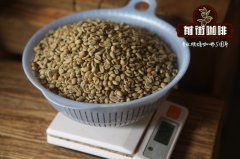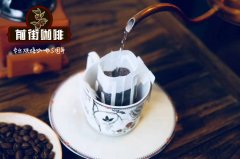Panamanian Coffee | introduction to Cupid Flavor of selected Series of small Farmers in Baru Volcano area

Panamanian Baru Volcano Small Farmer Collection Cupid
Country: Panama
Region: Baru Volcano
Altitude: 1,600-1,650 m
Treatment: honey treatment and traditional washing
Grade: SHB
Breeds: Kadura, Kaduai, Geisha
Flavor Description: Clean and clear Body, white grape, caramel aromas followed by honey, alpine black tea aroma charming! Very sweet, low acidity, round taste.
Boquete is Panama's oldest and most famous coffee-producing region, located on the east side of the Baru volcano, at an altitude of about 1000 to 2000 meters.
Volcan Baru National Park is an ecological conservation area with rich biodiversity, 7 microclimates, mist all year round and abundant rainfall, creating good local planting conditions, which makes Boquet coffee have a unique aroma and is the most productive and best quality coffee producing area in Panama. Every harvest season, coffee farmers will wash the delicate method, and drying in the sun, so that coffee beans full and pure flavor. The Baru volcano is not only the highest mountain in Panama, but also the sedimentary material produced by early volcanic activity and eruption brought a large amount of fertile soil, which is rich in substances, especially rich in phosphorus and sulfur mixed with clay. Combined with the unique climate pattern, the region has formed an environment suitable for the growth of high-quality coffee. The dense forest and many species contribute to the biodiversity. The coffee farmers here, about 50 of them in a small cooperative, produce coffee the traditional way in Poquete-growing it in a near-natural environment. Although the yield is not high, it can maintain a rich ecological environment, and the soil quality can be maintained or even improved. Natural cultivation methods are not only beneficial to the environment, because coffee fruit grows slowly, so it is easier to grow high-quality and good flavor coffee beans.
The farmers harvest the ripe berries manually and send them to the nearby Café de Eleta SA for post-processing, which is about 4 km away from the farm and has a modern laboratory for quality control and manual screening.
Important Notice :
前街咖啡 FrontStreet Coffee has moved to new addredd:
FrontStreet Coffee Address: 315,Donghua East Road,GuangZhou
Tel:020 38364473
- Prev

Ninety plus 90+ Company history
Ninety plus is an internationally renowned coffee bean production and marketing company and is known worldwide for providing rare and unique green coffee beans. In addition to direct cooperation with coffee farmers, Panama has 134 hectares of coffee plantations. Since its inception in 2007, customers have spread to more than 40 countries around the world. Joseph Brodsky founded Ninety Plu in 2007.
- Next

Introduction to the Flower Fairy Flavor of Orange County Cooperative in Costa Rica
Costa Rica Orange County Cooperative Flower Fairy country: Costa Rica: Naranjo altitude: 1200M~1700M treatment: washing treatment Grade: SHB Variety: Kaddura, bourbon Flavor description: mulberry-like sweet and sour fruit, smooth taste, long and full-bodied chocolate finish. Orange County Cooperative (Naranjo) is located in the capital San Jose.
Related
- Detailed explanation of Jadeite planting Land in Panamanian Jadeite Manor introduction to the grading system of Jadeite competitive bidding, Red bid, Green bid and Rose Summer
- Story of Coffee planting in Brenka region of Costa Rica Stonehenge Manor anaerobic heavy honey treatment of flavor mouth
- What's on the barrel of Blue Mountain Coffee beans?
- Can American coffee also pull flowers? How to use hot American style to pull out a good-looking pattern?
- Can you make a cold extract with coffee beans? What is the right proportion for cold-extracted coffee formula?
- Indonesian PWN Gold Mandrine Coffee Origin Features Flavor How to Chong? Mandolin coffee is American.
- A brief introduction to the flavor characteristics of Brazilian yellow bourbon coffee beans
- What is the effect of different water quality on the flavor of cold-extracted coffee? What kind of water is best for brewing coffee?
- Why do you think of Rose Summer whenever you mention Panamanian coffee?
- Introduction to the characteristics of authentic blue mountain coffee bean producing areas? What is the CIB Coffee Authority in Jamaica?

